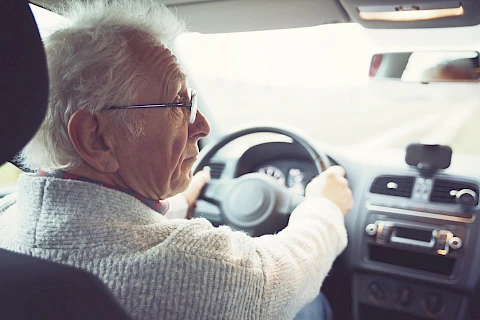
Driving is an important aspect of independence for many seniors. It allows them to stay connected with their community, run errands, and visit family and friends. However, as they age, ensuring that seniors drive safely becomes essential. Caregivers play a vital role in evaluating and supporting senior driving skills to help their loved ones maintain independence and promote safety for everyone on the road.
Senior Driving Challenges
Seniors face certain changes that can affect their driving abilities. Common age-related changes include decreased reaction time, impaired vision, and changes in cognitive function. These changes can make it more difficult to respond quickly to unexpected situations on the road. Seniors might also find it harder to see at night or have trouble judging distances. Understanding these challenges is the first step in ensuring safe driving for seniors.
Evaluating Senior Driving Skills
There are several signs that senior driving skills may be declining:
- Frequent close calls or minor accidents
- Difficulty staying in the lane
- Trouble with traffic signals and signs
- Getting lost or confused with directions
If any of these signs are present, it may be time to conduct a formal evaluation of their driving skills. Tools and resources are available for this purpose. Professional driving evaluations can provide an objective view of a senior's driving abilities. Self-assessment questionnaires can also help seniors think critically about their driving skills.
Supporting Safe Driving Practices
After evaluating senior driving skills, caregivers can use several strategies to support safe driving practices. Encourage seniors to have regular vision and hearing checks. Good vision and hearing are critical for safe driving. Promoting physical fitness and mental sharpness can also make a big difference. Regular exercises that improve flexibility and strength can help with turning the wheel and checking blind spots. Mental exercises, such as puzzles or memory games, can help maintain cognitive abilities.
Consider adapting vehicles for better safety and comfort. Simple changes, such as adding seat cushions or using pedal extensions, can make driving more comfortable and safer for seniors.
When to Limit or Stop Driving
There may come a time when limiting or stopping driving becomes necessary. Recognizing this is important for the safety of the senior and others on the road. Signs that it might be time to stop include increased anxiety or confusion while driving and advice from healthcare professionals. If driving is no longer safe, explore alternatives such as public transportation options or ride-sharing services. These alternatives can help seniors maintain their independence without the risks associated with driving.
Having Difficult Conversations
Having a conversation with a senior about limiting or stopping driving can be challenging. Approach the topic of senior driving skills with empathy and understanding, acknowledging the emotional impact of losing the ability to drive. Offer support and solutions, such as helping to set up alternative transportation options. Emphasize that the goal is to ensure safety and well-being.
Does Your Loved One Need Help With Transportation?
Assessing and supporting senior driving skills is a necessary task for caregivers. By understanding the challenges seniors face, evaluating their driving abilities, and promoting safe driving practices, caregivers can help seniors maintain their independence while ensuring safety.
If the older adult in your life would benefit from transportation around town, they have options. We proudly serve seniors in the Richmond Hill, Oak Ridges, Aurora, King City, and Newmarket areas, providing a wide array of supportive services. Contact us today at Senior Helpers Vaughan. Our goal is to empower your loved ones to live as independently as possible in their own homes.